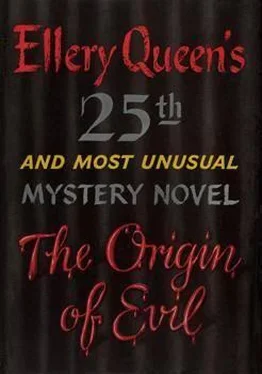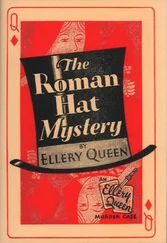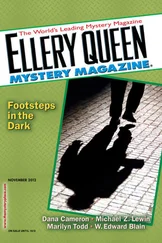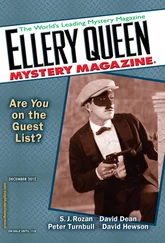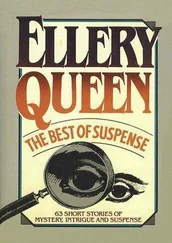“It could mean that,” said Ellery, “or...” He shrugged. “I’ll have to think about it.”
But Ellery’s thoughts were forced to take an unforeseen turn. In this he was not unique. Suddenly something called the 38th Parallel, half a planet away, had become the chief interest in the lives of a hundred and fifty million Americans.
Los Angeles particularly suffered a bad attack of the jitters.
A few days before, Koreans from the north had invaded South Korea with Soviet tanks and great numbers of Soviet 7.63-millimeter submachine guns. The explosive meaning of this act took some time to erupt the American calm. But when United States occupation troops were rushed to South Korea from Japan and were overwhelmed, and the newspapers began printing reports of American wounded murdered by the invaders, conviction burst. The President made unpleasantly reminiscent announcements, reserves were being called, the United Nations were in an uproar, beef and coffee prices soared, there were immediate rumors about sugar and soap scarcities, hoarding began, and everyone in Los Angeles was saying that World War III had commenced and that Los Angeles would be the first city on the North American continent to feel the incinerating breath of the atom bomb ― and how do we know it won’t be tonight? San Diego, San Francisco, and Seattle were not sleeping soundly, either, but that was no consolation to Los Angeles.
It was impossible to remain unaffected by the general nervousness. And, absurd as the thought was, there was always the possibility that it was only too well grounded.
The novel, which had been sputtering along, coughed and went into a nose dive. Ellery hounded the radio, trying to shut out the prophecies of doom which streaked up from his kitchen like flak in f wailing Louisiana accents from eight to five daily. His thoughts kept coming back to Tree Boy. Crowe Macgowan no longer seemed funny.
He had not heard from Lieutenant Keats for days.
There was no word from the Priam establishment. He knew that Delia had returned from Montecito, but he had not seen or heard from her.
Laurel phoned once to seek, not give, information. She was worried about Macgowan.
“He just sits and broods, Ellery. You’d think with what’s happening in Korea he’d be going around saying I told you so. Instead of which I can’t get him to open his big mouth.”
“The world of fantasy is catching up with Crowe, and it’s probably a painful experience. There’s nothing new at the Priams’?”
“It’s quiet. Ellery, what do you suppose this lull means?”
“I don’t know.”
“I’m so confused these days!” Laurel’s was something of a wail, too. “Sometimes I think what’s going on in the world makes all this silly and unimportant. And I suppose in one way it is. But then I think, no, it’s not silly and it is important. Aggressive war is murder, too, and you don’t take that lying down. You have to fight it on every front, starting with the picayune personal ones. Or else you go down.”
“Yes,” said Ellery with a sigh, “that makes sense. I only wish this particular front weren’t so... fluid, Laurel. You might say we’ve got a pretty good General Staff, and a bang-up army behind us, but our Intelligence is weak. We have no idea where and when the next attack is coming, in what form and strength ― or the meaning of the enemy’s strategy. All we can do is sit tight and keep on the alert.”
Laurel said quickly, “Bless you,” and she hung up quickly, too.
The Enemy’s next attack came during the night of July 6–7. It was, surprisingly, Crowe Macgowan who notified Ellery. His call came at a little after one in the morning, as Ellery was about to go to bed.
“Queen. Something screwy just happened. I thought you’d want to know.” Macgowan sounded tired, not like himself at all. “What, Mac?”
“The library’s been broken in to. One of the windows. Seems like a case of ordinary housebreaking, but I dunno.”
“The library? Anything taken?”
“Not as far as I can see.”
“Don’t touch anything. I’ll be over in ten minutes.”
Ellery rang up Keats’s home, got a sleepy “What, again?” from the detective, and ran.
He found young Macgowan waiting for him in the Priam driveway. There were lights on upstairs and down, but Roger Priam’s French windows off the terrace were dark.
“Before you go in, maybe I’d better explain the setup...”
“Who’s in there now?”
“Delia and Alfred.”
“Go on. But make it snappy, Mac.”
“Last couple of nights I’ve been sleeping in my old room here at the house―”
“What? No more tree?”
“You wanted it presto, didn’t you?” growled the giant. “I hit the sack early tonight, but I couldn’t seem to sleep. Long, time later I heard sounds from downstairs. Seemed like the library; my room’s right over it. I thought maybe it was Gramp and I felt a yen to talk to him. So I got up and went down the hall and at the top of the stairs I called, ‘Gramp?’ No answer, and it was quiet down there. Something made me go back up the hall and look in the old gent’s room. He wasn’t there; bed hadn’t been slept in. So I went back to the head of the stairs and there was Wallace.”
“Wallace?” repeated Ellery.
“In a robe. He said he’d heard a noise and was just going to go downstairs.” Macgowan sounded odd; his eyes were hard in the moonlight. “But you know something, Queen? I got a queer feeling as I spotted Wallace at the head of those stairs. I couldn’t make up my mind whether he was about to go down... or had just come up.”
He stared at Ellery defiantly.
A car was tearing up the road.
Ellery said, “Life is full of these dangling participles, Mac. Did you find your grandfather?”
“No. Maybe I’d better take a look in the woods.” Crowe sounded casual. “Gramp often takes a walk in the middle of the night. You know how it is when you’re old.”
“Yes.” Ellery watched Delia’s son stride off, pulling a flashlight from his pocket as he went.
Keats’s car slammed to a stop a foot from Ellery’s rear. “Hi.”
“What is it this time?” Keats had a leather jacket on over an undershirt, and he sounded sore.
Ellery told him, and they went in.
Delia Priam was going through the library desk, looking baffled. She was in a brown monkish negligee of some thick-napped material, girdled by a heavy brass chain. Her hair hung down her back and there were purplish shadows, almost welts, under her eyes. Alfred Wallace, in a Paisley dressing gown, was seated comfortably in a club chair, smoking a cigaret.
Delia turned, and Wallace rose, as the two men came into the library, but neither said anything.
Keats went directly to the only open window. He examined the sash about the catch without touching it.
“Jimmied. Have any of you touched this window?”
“I’m afraid,” said Wallace, “we all did.”
Keats mumbled something impolite and went out. A few moments later Ellery heard him outside, below the open window, and saw the beam of his flash.
Ellery looked around. It was the kind of library he liked; this was one room in which the prevailing Priam gloom was mellow. Leather shone, and the black oak paneling was a friendly background for the books. Books from floor to ceiling on all four walls, and a fieldstone fireplace with a used look. It was a spacious room, and the lamps were good.
“Nothing missing, Delia?”
She shook her head. “I can’t understand it.” She turned away, pulling her robe closer about her.
“Crowe and I probably scared him off.” Alfred Wallace sat down again, exhaling smoke.
Читать дальше
